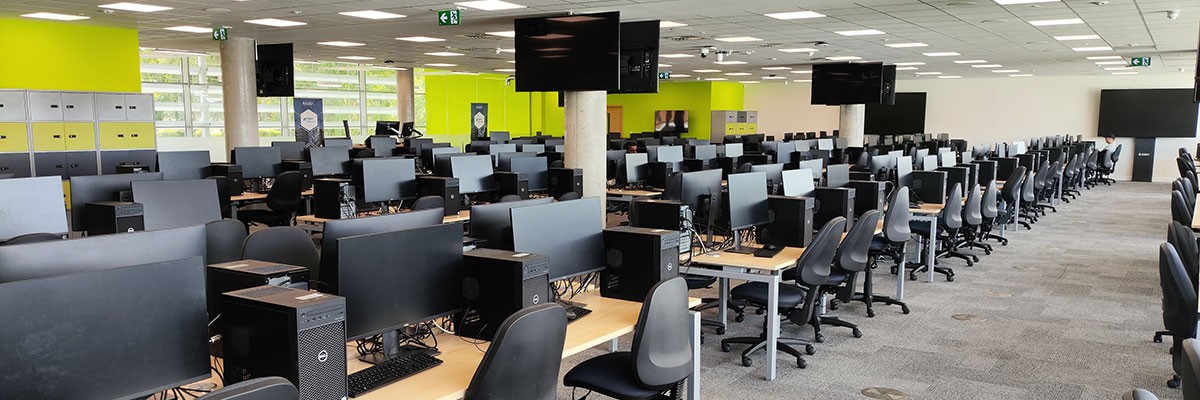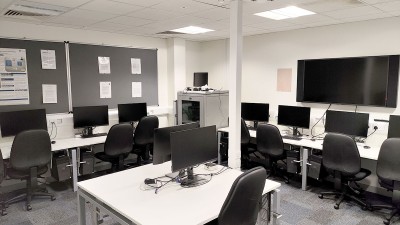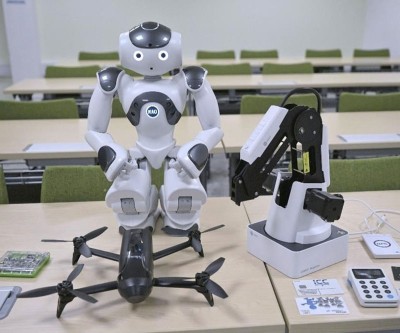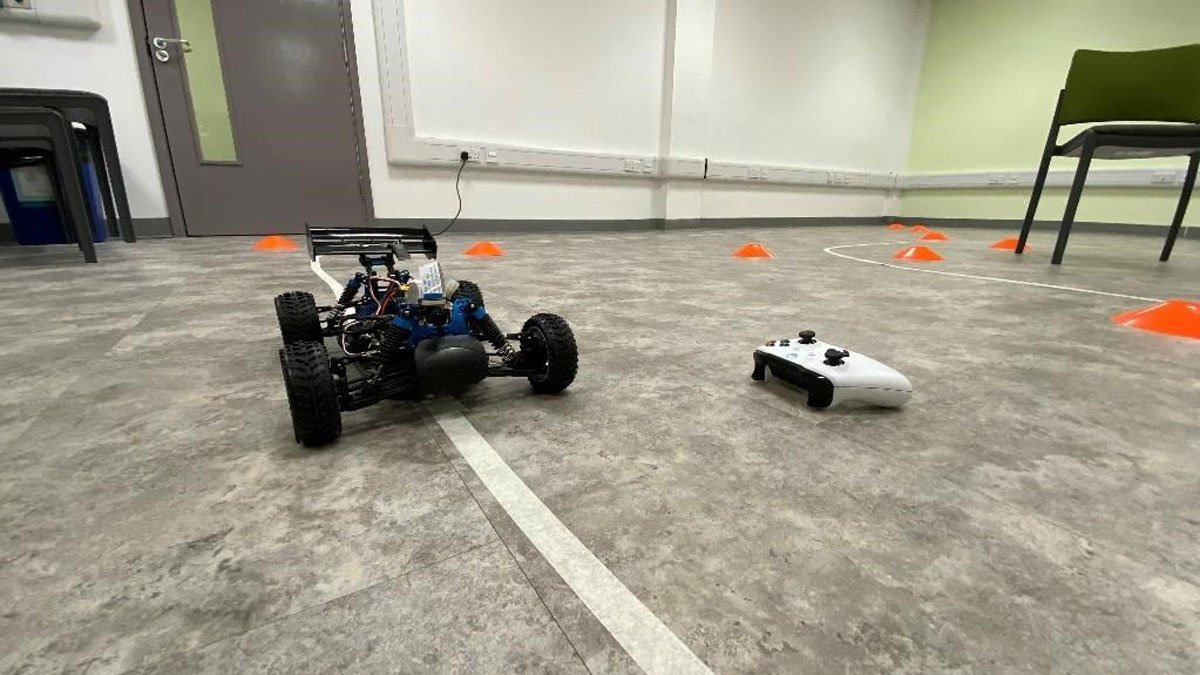
Computer science teaching facilities
Take a virtual tour
In 2019, the University of Surrey invested over £6.5m in new and upgraded facilities in the Faculty of Engineering and Physical Sciences. This video explores the computer science areas that benefited from this investment, including our new 200-seater Ada Lovelace laboratory.
Facilities to support your studies

Our newest Ada Lovelace lab has 200 machines which are each equipped with a Nvidia Quadro P4000 Graphics Card: useful for intensive jobs that require multiple cores in areas such as data science, AI and deep learning. Students have access to additional Linux and Windows labs.
Facilities for final year students

Grace Hopper Lab
Final year students get to use the Grace Hopper Lab: a dedicated 24-hour card access lab with additional lab machines and space for them to work.
This room offers machines with network segregation and NUCs for specialist security experiments to be carried out with real devices and hardware in a safe way, complementing our virtual OpenNebula platform.
Facilities for final year projects

Students also have access to a wide range of facilities during their final year projects, including:
- Pepper/NAO robots
- Parrot drones
- Edge devices
- GPU cards
- RC cars
- Franka Emika Panda robot arm with force/torque control
- 2 UR5 arms (Universal Robotics UR5, supporting 5kg payload)
- Intel RealSense 3D (with depth) camera D4351.
Additional equipment and external services to support projects can be purchased by the School (these are assessed on a case-by-case basis).
Find out more about final year projects.
Specialist facilities
Machine learning, data science and artificial intelligence
We have servers offering 12 Nvidia Quadro RTX 6000 cards. These fast, high memory (24GB) cards allow for training large machine learning models such as those using transformer architectures. This complements the 200 Quadro P4000 cards found in our main Linux lab. For research projects, students can also make use of the AI@Surrey server pool, which offers a variety of powerful GPU, CPU and high-memory nodes, depending on individual workload requirements.
Edge and cloud computing, networking and distributed systems and security
We have an OpenNebula installation which provides our own on-premises cloud environment in which students can set up virtual machines to safely explore security software. This includes tasks such as configuring firewalls or performing penetration testing using metasploit, as well as experimenting with different network setups (VLANs) to learn about the intricacies of computer networking.
Raspberry Pis
We provide remote access to over 100 Raspberry Pis, which are equipped with a Trusted Platform Module (TPM) to enable students to study and explore the security features and functionality provided by this important technology, which has been deployed in millions of devices, including the majority of all modern laptops and desktops.
Raspberry Pis, sensors, and other components are also made available for students to borrow for their own projects.

Autonomous car in a final year project using Raspberry Pi.
Pico microcontrollers
We offer Pico microcontrollers (RP2040, dual-core Arm Cortex-M0+) for use with lower-level hardware and sensing projects, especially useful for 'Internet of Things' experiments.
